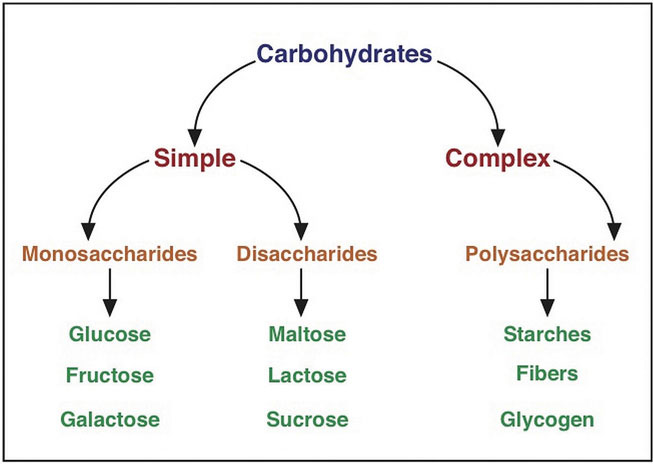Carbohydrates
The Structure of Carbohydrates
Carbohydrates are organic compound of carbon , hydrogen and oxygen.
Carbohydrates have a ring-like structure
Most carbohydrates are hydrophilic and soluble in water
The general chemical formula of Carbohydrates is (CH2O)n.
Carbohydrates are found in living tissues and foods in the form of starch, cellulose, and sugars.
The Functions of Carbohydrates
Carbohydrates provide the body with instant, short-term energy.
Carbohydrates provide structural support to cells.They are a part of nucleic acids (RNA and DNA).
The Importance of Carbohydrates in Our Body
Carbohydrates provide the body with instant, short-term energy.
Carbohydrates also help with controlling glucose in the blood.
Carbohydrates provide structural support to cells.They are a part of nucleic acids (RNA and DNA).
Consuming a lot of carbohydrates may lead to “Insulin resistance”,and many scientists believe that insulin resistance leads to a serious condition called ‘metabolic syndrome”.
The Properties of Carbohydrates

Interesting Facts About Carbohydrates
- The brain is the only carbohydrate-dependent organ in the body.
- Carbohydrates are the only fuel source metabolized fast enough to support hard exercise.
- Zero foods contain zero carbs.
- You can stay lean on high-carbs.
- Low-carb diets don't kill kidneys.
- Occasional carb-cutting beats cancer.



who knew they were so important
ReplyDelete